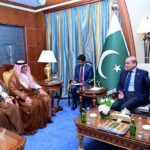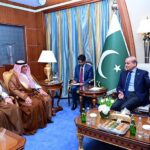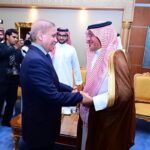ISLAMABAD, Dec 3 (APP): President Dr Arif Alvi Friday while recounting the government’s multiple initiatives for mainstreaming and inclusivity of the persons with disabilities, urged the society to enhance their acceptability and create awareness of the available facilities.
The president, addressing a ceremony to mark the International Day of Persons with Disabilities annually observed on December 3, said just like the developed states, Pakistan was also striving to take proper care of the PWDs.
He exemplified the government’s initiatives of Sehat Insaf Card, waiver of higher education expenses, monthly lifetime stipend of Rs2,000, jobs quota of 2-5% and legislation for their accessibility to public places and loan facilities for them to achieve their financial independence.
Also addressed by First Lady Samina Alvi, WHO Country Mission Dr Palitha Gunarathna Mahipala and Parliamentary Secretary Dr Nosheen Hamid, the event also featured the launch of Rapid Assistive Technology Assessment Report published by the National Health Services Academy.
The president said in order to ensure accessibility of the PWDs to public buildings, the federal government had already made legislation necessitating the construction of ramps on public buildings.
He said after two years of efforts and collaboration with the State Bank of Pakistan, the banks had constructed ramps for the PWDs.
He said no one could stop the country from progressing if all of its segments distributed their blessings on the deprived people.
The president advised the PWDs’ parents to come out of the taboo of sharing the disability of their child and avail the facilities to make them productive citizens of the country because they were also equally intellectual.
Regarding the ramps for the existing buildings in Islamabad, the president, who is also the vice-chancellor of several universities, said on his suggestion, the COMSATS University students had formulated a proposal for the construction of ramps in Islamabad’s F-6 market.
He said the idea could be implemented in collaboration with the Capital Development Authority and Islamabad Chamber.
He also asked the schools to welcome the PWDs without any discrimination and called for skill training and their match-making to make them earn jobs. This process should be accomplished not as charity rather with an aim to make PWDs a productive part of society.
He said the industry and relevant match-making organizations would have to find out a niche to ensure the absorption of disabled people.
He told the gathering that so far, only 400,000 PWDs had applied for the monthly stipend of Rs2,000 which necessitated the role of the society and media to aware the entitled people of available facilities.
Lauding the competence of paralyzed Dr Sana Hafeez and visually impaired diplomat Saima Saleem who spoke at the United Nations using braille, the president said being equally intellectual, the PWDs needed acceptability and opportunities to excel.
Mentioning the assistive technology, the president referred to the use of smartphone as the white cane and launch of the mobile braille application.
He said besides manufacturing the customized wheelchair, the government was also striving for maximum availability of cochlear implants.
Highlighting the importance of the first-aid training, the president said the government was considering the revival of the training in educational institutes and also emphasized the role of the Scouts Association, Girls Guide Association and NDMA could play a role.
First Lady Samina Alvi, in her address, emphasized the development of an inclusive society for the PWDs and take measures for their self-dependence.
She stressed the need for holding seminars and media campaigns to make the PWDs know about the government’s schemes for their welfare and mainstreaming.
She also suggested carrying out IT and skill training of the disabled people to earn them job or establish their own businesses.
She said besides its health part, the inclusivity of the PWD’s was also a human rights issue and urged the people not to discriminate or neglect them rather train them as per market needs.
She said President Alvi had already asked the federal and provincial governments to employ PWDs as per their allocated quota besides urging the private sector to absorb them as per their capabilities.
She lauded the contribution and support of the WHO towards the government’s initiatives for mainstreaming the PWDs
The WHO Representative in Pakistan Dr Palitha Gunarathna Mahipala appreciated the president for the commitment to the cause of inclusivity of the PWDs.
He also appreciated the survey RATA Survey which depicted the availability and needs of assistive technologies in Pakistan. He said the inclusivity of the PWDs would also improve the economic growth in the country.
He called for a resolve to intensify the efforts to end discrimination against the PWDs and protect their social and political rights and reiterated the WHO’s resolve to support the Government of Pakistan in this endeavour.
Parliamentary Secretary Dr Nosheen Hamid, in her welcome remarks, appreciated the president and the first lady for their continuous efforts for mainstreaming the PWDs.
She also assured that the government stood with them to support their lives for their mainstreaming and inclusivity.
Highlighting the contours of the RATA Survey, Vice-Chancellor of Health Services Academy Dr Shahzad Ali Khan said out of 62,723 respondents, 4,498 were found to be using an assistive technology product and 8,192 people expressed the need for it.
He said 23.5% of people were found having difficulty in a function and 53% demanded at least one assistive product. Around 93% people had purchased the assistive technology products by their own while 24% were using self-made tools.
The report recommended the local production of assistive technology tools and their coverage under social health protection.
Dr Sana Hafeez, who was appointed as WHO Global Goodwill Ambassador of Assistive Technology, shared her life story from an accident to her accepting the challenge and completing the medical degree and pursuing the career.
She also called steps to ensure accessibility and movement of the PWDs to live their life without depending on others.







